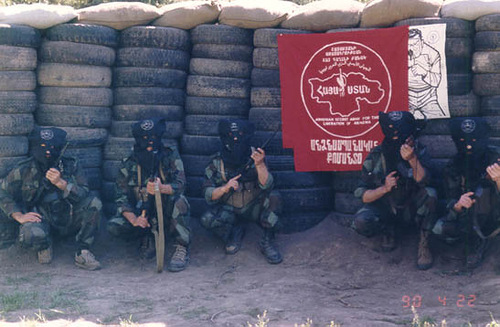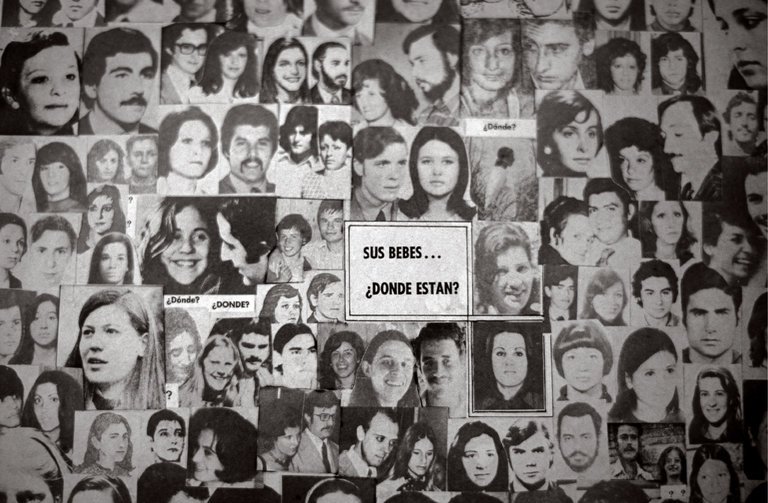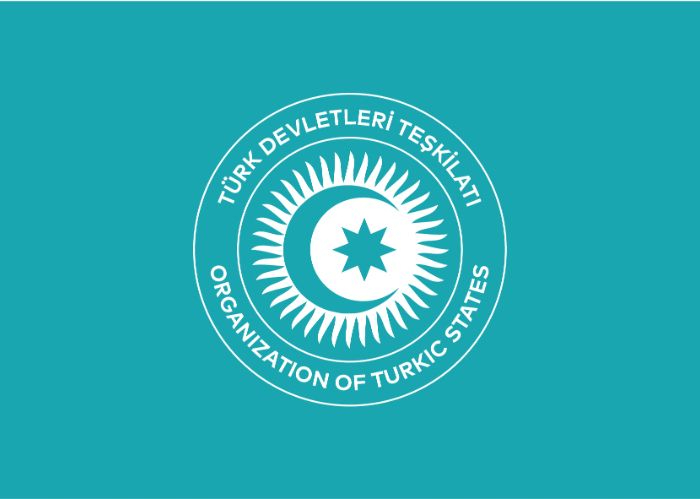Marilisa LORUSSO[1]
31.07.2015
After the promising signature of the Nuclear Deal, Iran seems to be on its way back into the international arena, and its comeback opens the floor to speculations and great expectations.
It’s been a while since the last piece of good news spread around the Caucasus and an overarching majority of pundits is now unanimously hailing. Still, as usual when talking about the South Caucasus, a country-wise, tailored approach is required. The region is too torn, national interests are too conflicting to express a unified view to whatever local, regional or international event might pop up.
Georgia, Armenia and Azerbaijan were all former parts of the Persian Empire, in a past that is remote enough not to sound threatening any longer. The three republics have been strongly influenced by Persian culture and its heritage is still visible and tangible in the art, language and architecture of the South Caucasus. This historic heritage has been preserved regardless of the twists and turns of international relations, and the fact that investments from and to Iran might be more easily accessible and more open could further enhance the exchange and the promotion of common assets. Something should be stressed here: this is an ongoing process, the ball is already rolling. Iran might have been an international pariah in other theaters, but it has never been left as an outsider in the South Caucasus. It preserved its regional relevance, and it kept developing its relations with the two plus one - Georgia does not actually share any border with Iran - northern neighbors.
For the three post-Soviet Republics trade exchange and diplomatic ties with Iran were till the very recent past to be molded not only consistently with the nature of the bilateral relation but, often on the tightrope, with the international commitments undertaken. Now things may go more smoothly, at least this is what can be assumed from a short review of what happened and what is happening in the last months in Georgia, Armenia and Azerbaijan. Necessarily singularly, one by one.
Georgia and Iran: Divided but Connected
Since the Rose Revolution in 2003, Georgia is gravitating around the West. The country eased its links to the former Soviet Bloc, officially left the Commonwealth of Independent States and made official pledge to NATO membership. Being a country under scrutiny for NATO membership and EU integration, it has been quite zealous in keeping its international politics in line with the official policies of the organization it has an eye on. This required to be balanced with the mutual interests developed with Iran that mostly revolve around some economic fields such as trade, energy, transportation, and tourism.
Iran is interested in Georgian transit capacity, and in its energy market, particularly the hydroelectric plants. To encourage mobility between the two countries, visas were mutually lifted. Georgia unilaterally revoked the visa-free rules for Iranian citizens in 2013[2] purportedly to bring them in line with the visa liberalisation action plan with the EU.
In May 2015, with Nuclear Deal negotiations boding well, Georgia’s deputy Prime Minister and Economy Minister Giorgi Kvirikashvili visited Tehran where he signed a Memorandum of Understanding, a comprehensive paper to tentatively wrap up a plethora of desirable business.[3] Already in 2013 an Iranian Business forum had been hosted in Tbilisi, with the participation of more then 90 executives from 52 Iranian companies.[4] There are reasons to believe that most hesitations and hurdles will now be removed.
The route Teheran-Tbilisi is open, and indeed both parties seem keen to fruitfully ride through it.
Armenia and Iran: More than Linked
Armenia is a landlocked country with land borders closed to the east and to the west. Its open borders are just the ones with Georgia and with Iran. Through the former, the country has its import-export with its main ally –Russia- guaranteed. But not less important is the latter, for at least three main reasons.
First of all, the biggest Armenian diaspora in the region lives, peacefully and undisturbed, in Iran, where it represents the largest Christian minority and, as such, where it enjoys a special status. Armenia regularly hosts a significant number of Iranian tourists, students and scholars, and in general cultural interlinks flourish. Secondly, in Yerevan’s view Iran played a very positive role in the Karabakh war. Teheran never officially sided with any of the parties of the conflict, but while Armenia was stifling under the economic constraints of the war, and suffering of an energy supply blockage, the hand stretched from Teheran was more than needed, helpful and welcome. Moreover, Teheran always opposed the presence of international peacekeepers so close to its borders, a fact that in long terms may have not been so beneficial, but that bestowed the full responsibility of the ceasefire -and of the status quo- on the parties directly involved in the conflict. This somehow strengthened the virtual sovereignty of Karabakh. Last, the trade between the two coasts of the Araks river is soaring, and for Yerevan, badly hit by the Russian economic downturn, by the Syrian crisis, and possibly on the verge of a long period of stagnation if not recession, is of paramount importance to find a source of relief which is directly and easily accessible, a politically viable partner, as Iran proved to be for Armenia during the last two decades.[5]
It is therefore not surprising that during the recent visit of the EU Council President Donald Tusk to Yerevan, commenting on the Nuclear Dear, the Armenian President Serzh Sargsyan stated:
[…] we also touched upon different events being under international spotlight during these days and expressed the belief that the successful course of those events will play a positive role in promoting security, stability and cooperation both at international and regional levels. The normal development and full involvement of the Islamic Republic of Iran in international processes coincide with our country’s primary interests.[6]
Primary interests that can be assessed about 300ml US$, according to the exchange estimated between the two countries in 2014.[7] Plus all the additional projects – among which a 3rd power transmission line – which can be now tabled much more unhampered and possibly enriched by third players’ know how and investments. In June Armenia and Iran signed a new Memorandum of Understanding.[8]
Azerbaijan and Iran: A Clash not of Civilizations
At regional level, the most complicated, controversial if not strained relation is the one between Azerbaijan and Iran, the two Muslim countries which share a land border and a sea one. The very first issue is territorial, indeed. As it is well known, the status of the Caspian Sea is still under negotiation. Recently the five-party talk – the format of the five costal states, nominally Russia, Iran, Azerbaijan, Turkmenistan, Kazakhstan – was rumored to be very close to an agreement.[9] So far the 39 meetings of the ad hoc working group dealing with the preparation of the Convention on the Legal Status of the Caspian Sea never produced a tangible, ultimate result. The unclear definition and agreed demarcation of borders have been a source of disputes between Baku and Teheran. Sea incidents occurred and the tension was so palpable that – up to 2012 – some observers were wondering whether the Azerbaijani massive campaign of rearmament was aimed at more than one territorial dispute of the country, meaning whether -besides Karabakh and Armenia- Iran could be somewhere on a list of possible future open military operations.
The origin of this rearmament has been as well problematic for Teheran; if talking about the axes Jerusalem-Washington-Ankara-Baku versus Moscow-Yerevan-Teheran sounds slightly outdated now, the close military cooperation and trade between Azerbaijan and Israel has indeed caused more than a headache to Iran. The choice of the allies, so, is a second thorny question between the two bordering states.
Going back to territorial disputes, there is another issue; the highest concentration of ethnic Azeri lives not in Azerbaijan (approximately 9 million) but in Iran (estimated around 20 million. Azarbaijan President Ilham Aliev talked about 30 million,[10] but it might be a politically motivated overrated data). Early Azeri nationalism pushed for a reunification of all Azeri lands and, albeit the terms of the question are definitely posed with a different wording now, every now and then the issue re-emerges in the Azerbaijani political debate. It should be recalled here that an autonomous Azeri political entity (Azərbaycan Demokratik Hökuməti, 1945-1946) under the protection of the Soviet Union took shape at the end of the 2nd World War and it took a masterpiece of Iranian diplomacy to persuade Moscow to respect the territorial integrity of the country and to quench all ethnic-based breakaway tensions. So, in an age of states’ fragmentation along ethnic cleavages with partial international recognition, there are few things as disturbing as a centripetal neighbour.
A last point and a couple of final remarks: Baku has claimed in the past that Iran’s religious propaganda penetrated the country to mine its regime and sovereignty. This destabilizing threat, real or perceived, was watered down, as many other, after the election of Hassan Rouhani. The relations between the two countries seem to be steadily, albeit slowly, improving. After the signature, Iranian authorities announced the introduction of a visa-free regime for citizens of seven countries including Turkey and Azerbaijan, in order to boost the tourism industry in the country.[11]
It is likely that a less isolated and therefore internationally more accountable Iran is a more desirable partner for Azerbaijan. At the same time the two countries share some economic and productive features, first of all as oil and gas exporters, a strategic field where it must be understood to what extent cooperation and competition can be combined. That is why among the three South Caucasian Republics, Azerbaijan will most certainly be the most cautious in assessing, step by step, Iran’s moves in the post-Nuclear Deal age.
[1] Marilisa Lorusso has obtained a BA in International and Diplomatic Sciences (University of Genoa), an MA in Foreign Languages and Literatures (University Cà Foscari, Venice), and a PhD on Democracy and Human Rights, Faculty of Political Sciences (University of Genoa). She is Maitre Assistant at El Manar University (Tunis) and External Expert of Eastern Studies of the University of Genoa. She has published articles and various contributions for Italian and foreign publications. As an expert of South Caucasus, she was deployed by the Italian Ministry of Foreign Affairs to the post-war European Union Monitoring Mission in Georgia (EUMM) and she was appointed as EU Council Secretariat for the post-war diplomatic discussions held in Geneva.
[2] Radio Free Europe/Radio Liberty, Georgia Unilaterally Cancels Visa-Free Travel with Iran, July 03, 2013, http://www.rferl.org/content/georgia-iran-visa-travel/25035168.html (retrieved on 29/07/15).
[3] Fars News, Minister: Iran-Georgia Trade Balance to Exceed $200bln, May 19, 2015, http://english.farsnews.com/newstext.aspx?nn=13940229001329 (retrieved on 29/07/15).
[4] Civil.ge, Iranian Business Forum in Georgia, July 02, 2013, http://www.civil.ge/eng/article.php?id=26236 (retrieved on 29/07/15).
[5] Marilisa Lorusso, Iran-Armenia, il nuovo dragomanno, in “Osservatorio Balcani e Caucaso”, July 25, 2012, http://www.balcanicaucaso.org/aree/Armenia/Iran-Armenia-il-nuovo-dragomanno-119844 (retrieved on 29/07/15).
[6] Hetq.am, Президент Серж Саргсян принял Председателя Европейского совета Дональда Туска, July 20, 2015, http://hetq.am/rus/news/61605/prezident-serzh-sargsyan-prinyal-predsedatelya-evropeiyskogo-soveta-donalda-tuska.html (retrieved on 29/07/15).
[7] Asbarez, Iran, Armenia Form Commission to Boost Trade, October 20, 2014, http://asbarez.com/128025/iran-armenia-form-commission-to-boost-trade/ (retrieved on 29/07/15).
[8] Tasmin News Agency, Iran, Armenia Take Major Step toward Visa-Free Travel, June 9, 2015, http://www.tasnimnews.com/english/Home/Single/764773 (retrieved on 29/07/15).
[9] Radio Free Europe/Radio Liberty, Iranian Officials say Caspian Legal Status nearly resolved, March 05, 2015, http://www.rferl.org/content/iran-official-says-caspian-legal-status-nearly-resolved/26884322.html (retrieved on 29/07/15).
[10] Council on Foreign Relations, Azerbaijan: accomplishments and challenges, April 06, 2006, http://www.cfr.org/azerbaijan/azerbaijan-accomplishments-challenges/p34057 (retrieved on 29/07/15).
[11] Tass.ru, СМИ: Иран отменил визы для граждан семи государств, June 28, 2015, http://tass.ru/mezhdunarodnaya-panorama/2150015 (retrieved on 29/07/15).
© 2009-2025 Center for Eurasian Studies (AVİM) All Rights Reserved
Henüz Yorum Yapılmamış.
-
 80TH ANNIVERSARY OF ANSCHLUSS: EUROPEAN VALUES BEING TRAMPLED AS FAR RIGHT RISES - DAILY SABAH - 04.04.2018
80TH ANNIVERSARY OF ANSCHLUSS: EUROPEAN VALUES BEING TRAMPLED AS FAR RIGHT RISES - DAILY SABAH - 04.04.2018
Teoman Ertuğrul TULUN 05.04.2018 -
 REMEMBERING THE VICTIMS OF ARMENIAN TERRORISM – TCA – 27.01.2019
REMEMBERING THE VICTIMS OF ARMENIAN TERRORISM – TCA – 27.01.2019
TCA 28.01.2019 -
 THE DEATH OF A GENOCIDE - THE NEW YORK TIMES - 20.03.2018
THE DEATH OF A GENOCIDE - THE NEW YORK TIMES - 20.03.2018
Paula Mónaco Felipe 21.03.2018 -
 RUSSIA AND UKRAINE’S NEW RELATIONS: EVOLUTION THROUGH CONFRONTATION - 25.06.2024
RUSSIA AND UKRAINE’S NEW RELATIONS: EVOLUTION THROUGH CONFRONTATION - 25.06.2024
Jakub KOREJBA 25.06.2024 -
 TÜRK DÜNYASI 2040 VİZYONU - TÜRK DEVLETLERİ TEŞKİLATI - 13.11.2021
TÜRK DÜNYASI 2040 VİZYONU - TÜRK DEVLETLERİ TEŞKİLATI - 13.11.2021
Türk Devletleri Teşkilatı 15.11.2021


